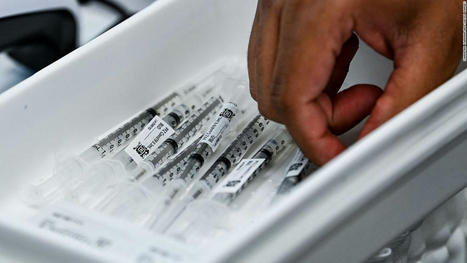BACKGROUND
Until very recently, vaccines against severe acute respiratory syndrome coronavirus 2 (SARS-CoV-2) had not been authorized for emergency use in persons younger than 16 years of age. Safe, effective vaccines are needed to protect this population, facilitate in-person learning and socialization, and contribute to herd immunity.
METHODS
In this ongoing multinational, placebo-controlled, observer-blinded trial, we randomly assigned participants in a 1:1 ratio to receive two injections, 21 days apart, of 30 μg of BNT162b2 or placebo. Noninferiority of the immune response to BNT162b2 in 12-to-15-year-old participants as compared with that in 16-to-25-year-old participants was an immunogenicity objective. Safety (reactogenicity and adverse events) and efficacy against confirmed coronavirus disease 2019 (Covid-19; onset, ≥7 days after dose 2) in the 12-to-15-year-old cohort were assessed.
RESULTS
Overall, 2260 adolescents 12 to 15 years of age received injections; 1131 received BNT162b2, and 1129 received placebo. As has been found in other age groups, BNT162b2 had a favorable safety and side-effect profile, with mainly transient mild-to-moderate reactogenicity (predominantly injection-site pain [in 79 to 86% of participants], fatigue [in 60 to 66%], and headache [in 55 to 65%]); there were no vaccine-related serious adverse events and few overall severe adverse events. The geometric mean ratio of SARS-CoV-2 50% neutralizing titers after dose 2 in 12-to-15-year-old participants relative to 16-to-25-year-old participants was 1.76 (95% confidence interval [CI], 1.47 to 2.10), which met the noninferiority criterion of a lower boundary of the two-sided 95% confidence interval greater than 0.67 and indicated a greater response in the 12-to-15-year-old cohort. Among participants without evidence of previous SARS-CoV-2 infection, no Covid-19 cases with an onset of 7 or more days after dose 2 were noted among BNT162b2 recipients, and 16 cases occurred among placebo recipients. The observed vaccine efficacy was 100% (95% CI, 75.3 to 100).
CONCLUSIONS
The BNT162b2 vaccine in 12-to-15-year-old recipients had a favorable safety profile, produced a greater immune response than in young adults, and was highly effective against Covid-19. (Funded by BioNTech and Pfizer; C4591001 ClinicalTrials.gov number, NCT04368728. opens in new tab.)
Published in NEJM (May 27, 2021):



 Your new post is loading...
Your new post is loading...








